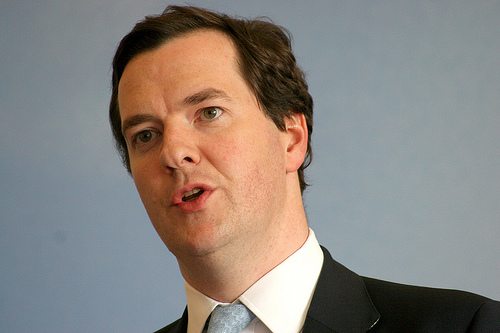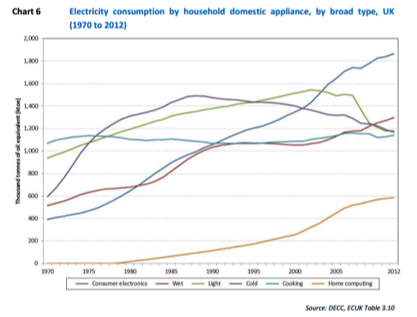

Features
Technology: Let’s make this country the best
Chancellor George Osborne’s weekend Observer article calling for Britain to be the best at ‘technology’ rings slightly hollow, when you realise he’s talking about digital technology. Digital technology is hugely valuable to our economy. But clean technology, in the form of renewable energy, energy efficiency and energy storage, is far more important to our national interest than another social network, game or app.
In his article he writes, “The digital economy is booming, producing the kind of jobs we need to win in the global race.”
The economic revolution that Osborne wishes to see comes from getting children coding again.
In a misty-eyed remembrance of the days when kids coded on BBC Microcomputers he’s frustrated that children are just being trained to use PowerPoint and Word, as consumers rather than producers. This initial argument has some merit, but all the coding in the world will be for nothing once the lights go out.
In 2010, the Energy Saving Trust and DEFRA identified that the average UK household had 41 appliances. Gone are the days, when an average household would have an oven, fridge, washing machine, single television, heating and lights. Multiple kitchen, consumer, computing and communication appliances fill every home.

The government’s endless dithering over nuclear power and deep division over renewables means we’ll have precious little energy to power our increasingly digital, consumer-electronics economy in the next two years.
In the article, it transpires that Mr Osborne is going to debate the role of government alongside entrepreneurs in creating a digital economy, with Wikipedia’s founder, Jimmy Wales at the Campus Party at London’s O2. The irony that the internet was created with massive government subsidy seems to be forever lost on Mr Osborne.
That many coding jobs have been outsourced to China and India, also escapes Mr Osborne’s starry-eyed analysis that, “Ooh, I’m meeting Jimmy Wales”.
The jobs we really need are those that reduce are energy usage and make our economy cleaner.
He goes on, “But my job as chancellor is to make sure we create the right environment for those entrepreneurs to succeed.”
And the right environment for any entrepreneur means clean, domestic and limitless energy from renewables, with falling prices. Subsidising oil and gas and encouraging fracking does the exact opposite of creating the right environment for entrepreneurs, even ‘those [digital] entrepreneurs’. Messing around with energy tariffs damaged brilliant entrepreneurs in the renewable sector and our nation’s future energy security.
The right environment for entrepreneurs needs a reasonably priced, secure supply of energy. It also requires a creative, educated, highly-motivated workforce (ideally on proper contracts with proper wages), robust physical and communication infrastructure and constructive political relationships with our closest markets will help too. Free, fair, well-regulated markets, reported by a responsible media, which take into account the costs to environment of any economic activity, can’t be too much to ask for the ‘right environment’.
Or you could constantly tinker with the sixth best education system in the world (having never actually studied at, or sent your own children, to one of the schools that 93% of the nation’s children attend).
You could weaken employee rights, creating greater fear and uncertainty. You could let our road and broadband infrastructure creak, while failing to invest enough in mass transit systems and high speed communications. Maybe constantly insulting our closest neighbours and largest trading partners seems sensible. You could allow monopolies to consolidate their positions, avoid their tax obligations and rapaciously profiteer from businesses and consumers.
You could allow a rabid press to spread disinformation and corporate propaganda. You could ignore the massive current costs of pollution and the future risks of commodity scarcity.
Yeap, that’ll certainly create the right environment for entrepreneurship. Or is it simply stupid and reckless?
Apparently Osborne is, “proud of the measures this government is taking to ensure Britain is in the vanguard of the digital economy.”
We’re deeply embarrassed and ashamed of the measures the government is taking to ensure our economy remains hooked on 19th century energy generation, the burning of fossil fuels. It’s a huge pity that we will become the laggards rather than at the vanguard of the clean economy. But at least we’ll have lots of digital screens. That we can’t turn on, because we’ve exceeded our capacity to generate electricity.
He concludes, “Thanks to our commitment to the digital economy, I have no doubt that a new generation of talented British software engineers will follow in Jimmy’s footsteps and help create a better future for us all.”
Thanks to this environmentally-illiterate Chancellor’s lack of commitment to the clean economy, we have no doubt that we will squander the valuable economic opportunity in renewables and other clean technology, creating a dramatically worse future for all.
British software engineers will certainly leave the UK in droves, as they have done before, if they can’t turn computers on and all the lights have gone out.
Our heavily indebted, fossil fuel-addicted, energy-importing and energy-inefficient nation needs more producers, engineers and scientists. We need a real economy that actually makes things, rather than one dependent on the vagaries of online fads and financial speculation. This government’s actions, and the current infatuation with a shiny new digital economy, fall far short of those commensurate with the risks we face.
Would the last person to leave the country please turn the lights out… oh, sorry, you won’t need to.


 Environment12 months ago
Environment12 months agoAre Polymer Banknotes: an Eco-Friendly Trend or a Groundswell?

 Features11 months ago
Features11 months agoEco-Friendly Cryptocurrencies: Sustainable Investment Choices

 Energy11 months ago
Energy11 months agoThe Growing Role of Solar Panels in Ireland’s Energy Future

 Energy12 months ago
Energy12 months agoHow Renewable Energy Can Help Combat Climate Change, According to Indra Energy


























